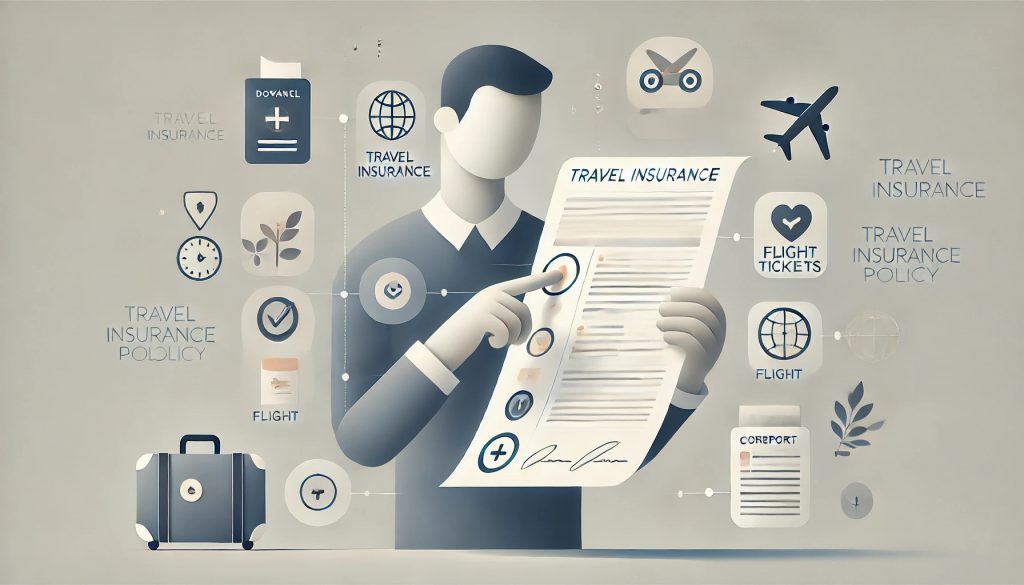Picture this: You’re halfway through your dream holiday abroad when an unexpected medical emergency arises, or worse, your meticulously planned trip is disrupted by a cancelled flight. These scenarios are more common than you might think, and without the right safety net, they can quickly turn into financial and logistical nightmares.
For many travellers, the thought of investing in travel insurance is often an afterthought—something they assume they won’t really need. But with the unpredictability of international travel, the stakes are too high to leave this decision to chance. Whether it’s ensuring access to quality medical care, protecting your trip investment, or handling unforeseen mishaps, travel insurance is your ultimate safeguard.
In this comprehensive guide, we’ll delve into the essentials of travel insurance, from understanding what it covers to choosing the best policy for your needs. You’ll learn how to avoid common pitfalls, tailor coverage for your specific trip, and navigate the sometimes overwhelming world of insurance providers. By the end, you’ll feel empowered to make wise decisions, ensuring your safety and sense of security wherever your journey takes you.
Let’s explore how to make your next adventure not just memorable but also worry-free.
What is Travel Insurance?
Travel insurance is a safety net that shields you from unexpected expenses and disruptions while travelling. At its core, it offers coverage for a variety of risks, including:
- Medical emergencies: Hospital stays, doctor visits, or evacuation costs.
- Trip cancellations: Reimbursement for prepaid bookings when trips are disrupted.
- Lost or delayed luggage: Compensation for essential items and replacement costs.
For instance, imagine falling ill in a country where healthcare costs are exorbitant. Without travel insurance, you could be left footing a bill that drains your savings. A real-world example is a traveller in the United States facing a $10,000 hospital bill for appendicitis—fully covered by their insurance.
Quick Tip: Tailor your policy to your travel needs. Adventure travellers might require policies that cover extreme sports, while business travellers might prioritise coverage for delayed flights or lost devices.
Understanding Policy Details

Understanding the details of your travel insurance policy is crucial to avoiding surprises when you need it most. Start by familiarising yourself with key terms:
- Premiums: The cost of your travel insurance policy.
- Deductibles: The amount you must pay out of pocket before your coverage kicks in.
- Exclusions: Situations or risks not covered by the policy.
Common Exclusions to Watch For:
- Injuries sustained during high-risk activities like skydiving.
- Pre-existing medical conditions unless explicitly included.
- Weather-related disruptions if not specifically covered.
Real-Life Scenario: A traveller missed a connection due to a storm but didn’t realise their policy excluded weather-related disruptions, leaving them to pay for last-minute accommodations.
Quick Tip: Compare multiple policies side-by-side and ensure you understand the claims process. Some insurers offer 24/7 helplines and digital claims submissions, which can be lifesavers in emergencies.
Benefits of Travel Insurance for International Travel
Travel insurance offers a range of benefits that go beyond financial protection. These include:
- Medical Coverage: If you fall ill or have an accident abroad, travel insurance covers hospital stays, emergency evacuation, and more. For example, a traveller’s medical emergency in Europe, resulting in costs exceeding $600,000, was fully covered by their travel insurance (Adelaide Now).
- Trip Cancellation and Interruption Protection: Reimbursement for unused bookings due to unforeseen personal emergencies or global events, such as during the COVID-19 pandemic.
- Assistance Services: Help with replacing lost passports, arranging emergency translations, or finding medical facilities.
Pro Tip: Ensure your policy covers essential services like medical evacuation and trip interruptions to avoid unexpected expenses.
Tailoring Your Policy for Specific Needs
No two trips are identical, and neither should your travel insurance be. Tailoring your policy ensures you’re not paying for unnecessary extras while still covering what matters most.
Checklist for Customising Your Policy:
- Does the policy cover adventure activities like skiing or trekking?
- Are dependents included at no extra cost?
- Is extended coverage available for long-term travel?
- Does it offer global coverage for multiple destinations?
Example Scenarios:
- Adventure Travellers: Policies with coverage for extreme sports and high-risk activities are essential. Skiing in Switzerland, for instance, may require additional coverage for medical evacuation.
- Digital Nomads: Long-term policies with remote work equipment coverage and emergency repatriation can be a lifesaver.
Tip: Before purchasing, make a checklist of your trip’s unique aspects and cross-reference them with policy features. Many insurers offer customisable add-ons.
How to Choose the Best Travel Insurance Provider
Selecting the right travel insurance provider involves more than just comparing prices. Here are some factors to consider:

- Reputation: Research customer reviews and third-party ratings for insights into claims processes and customer service. For instance, 90% of customers recommend IMG travel insurance for its reliability and service (Forbes).
- Coverage Options: Providers with flexible plans that cater to various travel scenarios often stand out. Allianz, for example, offers a “OneTrip Prime” policy for single trips and an “AllTrips Premier” for frequent travellers (NerdWallet).
- Claims Process: Opt for providers with streamlined systems, such as mobile app submissions or 24/7 helplines, ensuring support is readily available during emergencies.
- Financial Stability: Established insurers are better equipped to handle large-scale disruptions, ensuring reliability when you need it most.
Quick Tip: Use comparison tools to find the best provider that matches your specific needs.
Common Mistakes to Avoid When Buying Travel Insurance
Avoiding common mistakes can save you from frustration and financial loss. Here are the most frequent errors:
- Delaying Your Purchase: Many travellers buy insurance right before departure, missing out on coverage for trip cancellations that occur weeks before.
- Failing to Declare Pre-Existing Conditions: Undisclosed health concerns can lead to denied claims. Always be upfront to ensure your coverage is valid.
- Choosing Based Solely on Price: Cheap policies often exclude critical coverage like high-value items or high-risk activities.
- Ignoring the Fine Print: Misunderstanding exclusions, such as those for extreme weather or adventure sports, can result in unexpected expenses.
Pro Tip: Review your policy thoroughly and consult the insurer for clarification on any ambiguous terms.
Real-Life Scenarios: How Travel Insurance Saved the Day
Real-world examples underscore the importance of comprehensive travel insurance:
- Lost Luggage: A family on a multi-country trip received immediate funds to replace essentials, saving their holiday.
- Medical Emergencies: A solo traveller broke their leg while trekking in Nepal. Their policy covered emergency air evacuation and medical bills, sparing them thousands of pounds.
- Natural Disasters: During the California wildfires, travellers with “cancel-for-any-reason” policies were reimbursed for cancelled trips, even when standard policies wouldn’t have covered their decisions (MarketWatch).
Takeaway: These scenarios highlight the importance of a robust travel insurance policy for financial and logistical safety.
Future Trends in Travel Insurance
The future of travel insurance is evolving to meet modern demands. Key Trends Include:
- Digital Transformation: AI-driven claims processing and real-time policy management apps are becoming standard.
- Pandemic-Related Coverage: Provisions for COVID-19, such as quarantine costs and illness cancellations, are now priorities.
- Sustainability: Policies promoting eco-friendly travel, like covering carbon offset programs, are gaining popularity.
- Niche Plans: Tailored policies for digital nomads or adventure travellers ensure coverage keeps pace with changing travel behaviours.
Pro Tip: Stay informed about these advancements to ensure your protection remains up-to-date.
The Final Word: Travel Insurance for a Secure Journey

Your next adventure deserves to be worry-free. Take the first step towards stress-free travel by exploring comprehensive travel insurance options that cater to your unique needs. Start comparing trusted providers today, and embark on your journey with the confidence that you’re fully protected.
Investing in travel insurance is more than just a financial decision; it’s a commitment to ensuring your peace of mind. Whether you’re exploring bustling cities or remote destinations, the right policy offers a safety net that lets you focus on creating unforgettable memories.
Don’t let uncertainty hold you back. Equip yourself with the ultimate travel companion—a robust travel insurance policy—and experience the world with confidence. Safe travels await you!
Disclaimer
This blog is intended to serve as a helpful guide to understanding travel insurance and its potential benefits. However, it is not a substitute for professional advice or consultation. Travel insurance needs can vary greatly depending on your circumstances, so it’s essential to consult with a qualified insurance professional to ensure you select the best policy for your specific needs. Always carefully review all terms, conditions, and exclusions before purchasing insurance to make an informed decision.